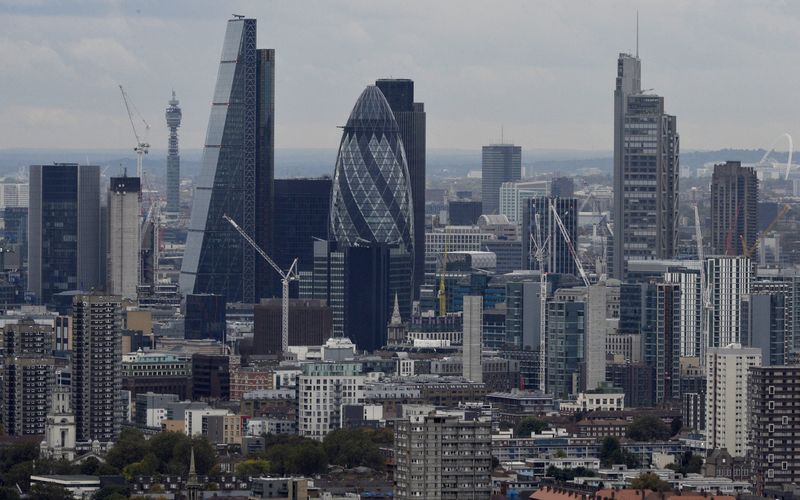By William Schomberg
LONDON (Reuters) -Companies in Britain's services sector saw another pick-up in growth this month, suggesting the economy can avoid a recession for now at least, according to a survey published a day after the Bank of England signalled interest rates would stay high.
Sterling rose on Friday after the publication of the Purchasing Managers' Index which economists said supported the BoE in its refusal to talk about cutting borrowing costs.
The S&P Global/CIPS UK Composite PMI - spanning services and manufacturing firms - rose to 51.7, according to December's preliminary reading, the highest in six months and up from November's final reading of 50.7.
Economists polled by Reuters had forecast a smaller increase to 50.9.
The stronger-than-expected reading contrasted with a PMI survey for the euro zone which worsened in December and suggested the bloc was is in a recession.
"The UK economy continues to dodge recession with growth picking up some momentum at the end of the year to suggest that GDP stagnated over the fourth quarter," Chris Williamson, S&P Global Market Intelligence's chief business economist, said.
"This is, however, a dual-speed economy, with manufacturing contracting sharply while services regained some poise."
Financial services activity was helped by hopes of lower interest rates in 2024, Williamson said.
The BoE kept borrowing costs on hold on Thursday and once again stressed they would need to remain elevated to smother the risks from still-high inflation. But financial markets are pricing rate cuts next year.
The PMI showed that in the services sector, business activity gauge climbed to 52.7 from 50.9, also its highest reading since June and only the second time since July that the index was above the 50.0 growth threshold.
But manufacturing's reading fell to 46.4, reversing some of November's improvement and representing the 17th consecutive month of contraction.
Solid growth in new business for services companies offset a fall in manufacturing orders to give the first overall order growth in six months.
Staffing levels fell for a fourth month in a row.
The survey offered a little bit of relief to the BoE by showing a small slowdown in services price inflation, which the central bank watches closely.
The gauge of output price growth in the sector eased to 57.7 from 58.2, but it remained high by historical standards.
Alex Kerr, an economist with Capital Economics, said the persistence of price pressures would encourage the central bank to double down on its narrative that rates will stay high for longer.
"Overall, the resilience of activity and stickiness of price pressures will only add to the Bank of England's unease," Kerr said in a note to clients.
Samuel Tombs, with Pantheon Macroeconomics, said the PMI reduced the risk of a recession but the fall in hiring and the weaker increases in prices charged by firms, if sustained, could lead to a first BoE rate cut in the second quarter of 2024.
The cautiously positive tone - including the strongest expectations for output in three months in the composite index - chimed with some other positive signs for Britain's largely moribund economy.

Consumers turned a bit more confident in December, according to a survey published earlier on Friday, and there have been some signs that a housing market slowdown has bottomed out.
However, the big picture remains one of barely perceptible economic growth. Data published on Wednesday showed gross domestic product shrank by 0.3% in October, leaving output flat since January.